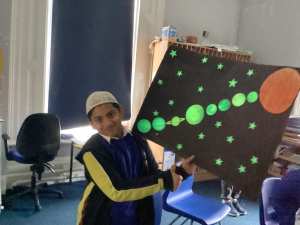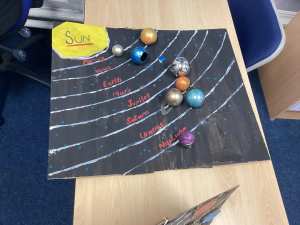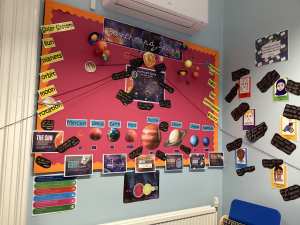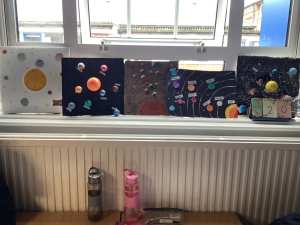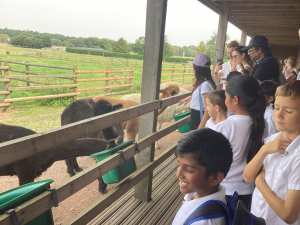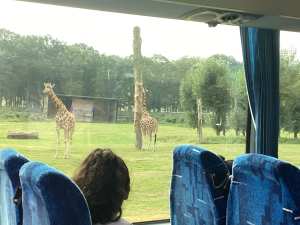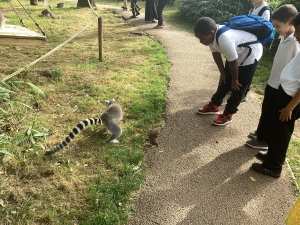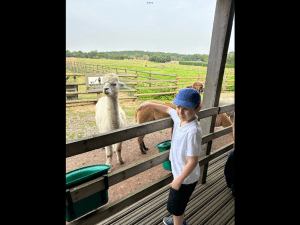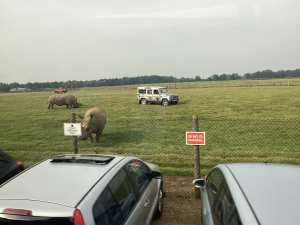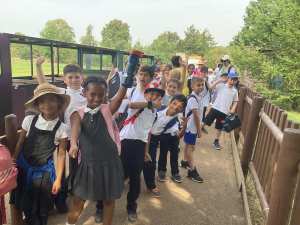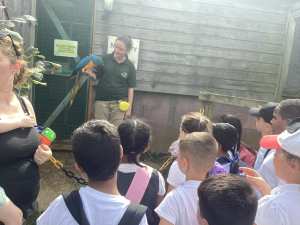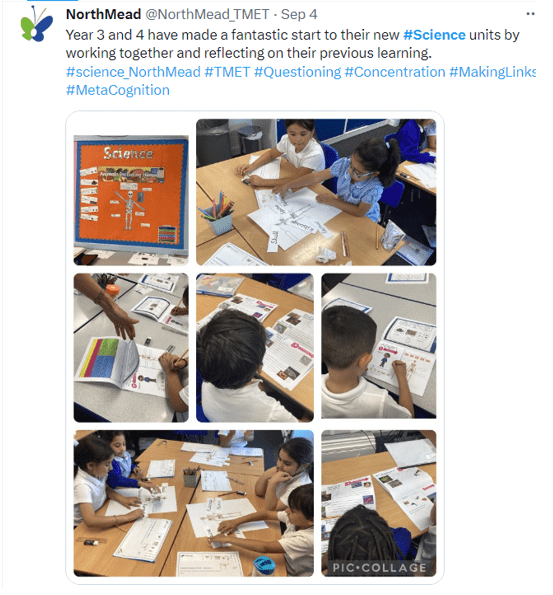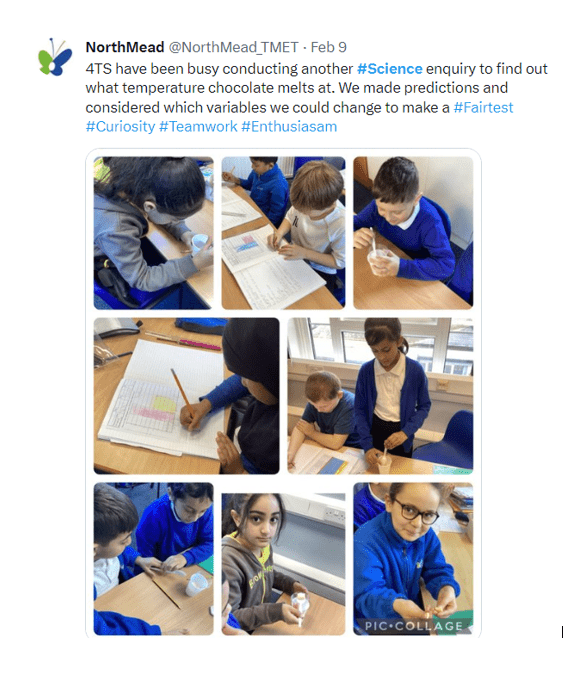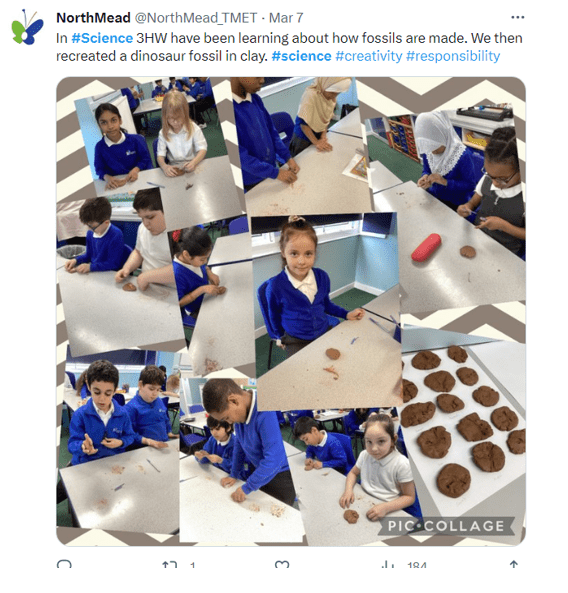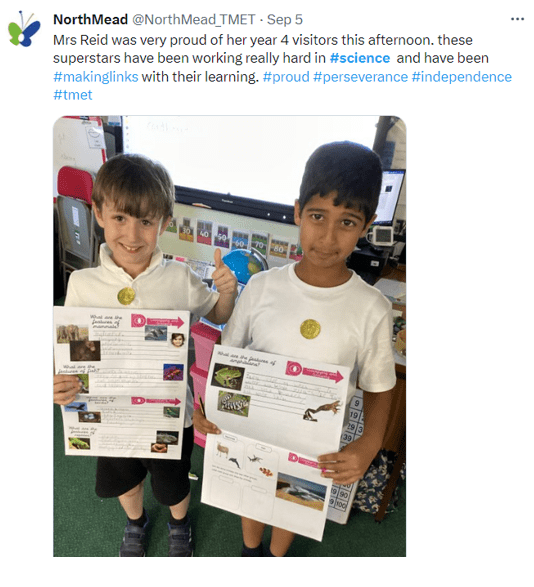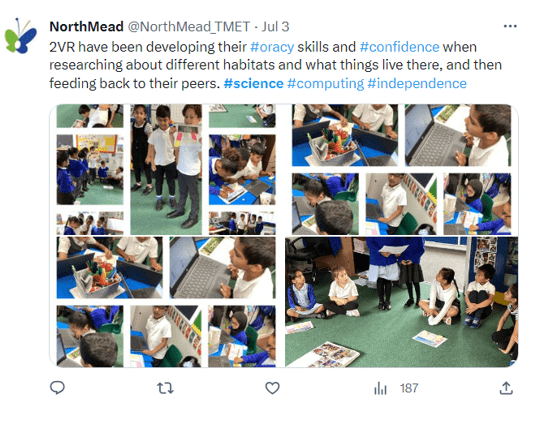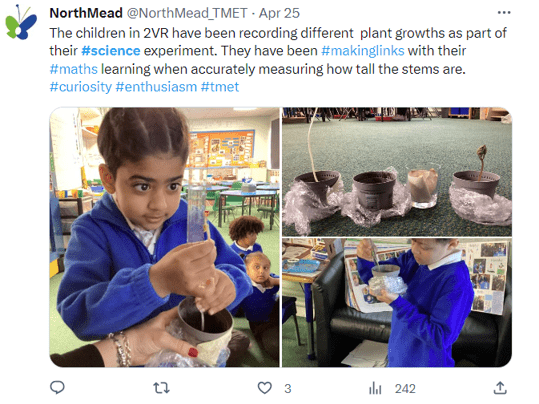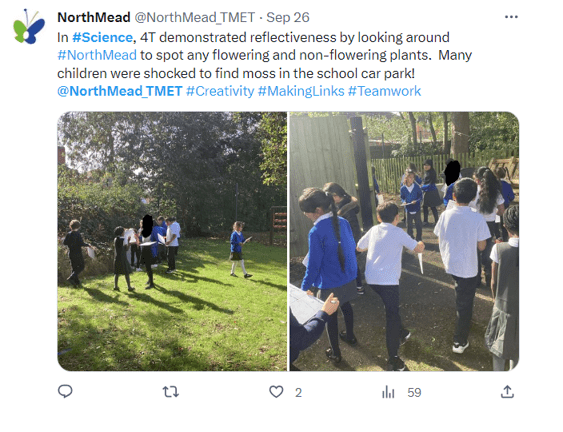At North Mead, we believe every child has the right to access their full potential. We strive to provide our children with a broad, relevant, and enriched science curriculum to raise aspirations and provide cultural capital. We believe that building children’s science capital is vital to help broaden both experiences and opportunities for our pupils. E.g., Children in year 3 visit the Think Tank Museum to develop their understanding of rocks, while Year 4 visit Woburn Safari to develop their understanding of Animals including Humans.
Our science intent forms part of our wider curriculum intent: We will provide all of our children with a broad, relevant and enriched curriculum so that they have the character to make a positive contribution to our society and are knowledgeable, skilled and ready for the next phase of their education.
At North Mead Primary Academy, we believe in the importance of science: nurturing curiosity and creativity. Through a combination of investigative skills and practical activities, children will develop an understanding of the world in which we live, the journey of science and its importance for the future.
Science is taught discretely following the national curriculum.
Below is an overview of science taught at North Mead Primary Academy:
Key Principles of Science:
Teaching and learning in science is successful at North Mead Primary Academy when…
- Children experience inspiring science which engages and motivates them
- Children are catalysts in their own learning
- Lessons link to the children’s lives and experiences to build science capital
- All children can make new discoveries through practical investigations
- Children are able to use and apply scientific vocabulary and skills effectively
- There is a progression of skills across the school
- Cross-curricular links are made to deepen understanding
- Learning prompts as many questions as answers
- Blooms Taxonomy is used to stretch and challenge and to develop scientific reasoning
- Children have opportunities to work independently and collaboratively
- Our outdoor environment is used as an effective tool for learning
- A range of resources, such as IT, are used to enhance and support learning
Science Whole School Progression Map:
Year 5 have been learning about Earth and Space! They produced some amazing homework!
To increase cultural capital, when studying the topic, Animals including Humans, Year 4 visited Woburn Safari Park.
Some Useful Links are below:
Science programmes of study: key stages 1 and 2 (publishing.service.gov.uk)
Home – Primary Science Teaching Trust (pstt.org.uk)
https://carnegiestemgirls.org/stem-activities/activities/ – STEM Activities for girls
https://www.natgeokids.com/uk/category/discover/science/
https://littlebinsforlittlehands.com/science-experiments-and-activities/
https://www.bbc.co.uk/bitesize/subjects/z6svr82
https://happyhooligans.ca/science-activities-for-kids/
https://funlearningforkids.com/science-activities-kids/
https://www.youtube.com/c/BraveWilderness/videos
https://www.bbc.co.uk/iplayer/episodes/m000fbs2/andys-aquatic-adventures

